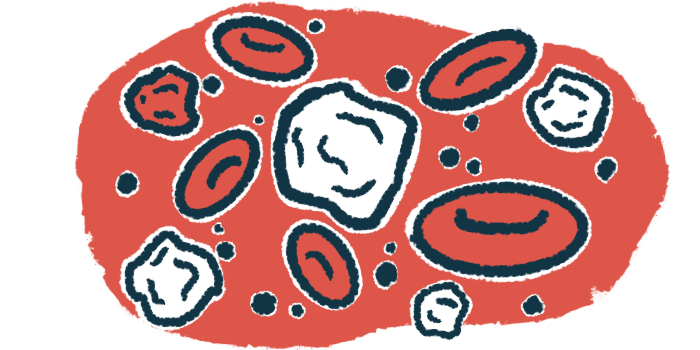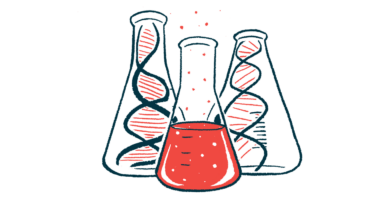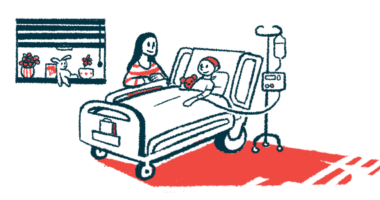Blood test may predict patients’ responses to CAR T-cell therapy
Higher values in test of immune cell numbers linked to better outcomes

A blood test measuring numbers of lymphocytes, a type of immune cell, may predict how well people with relapsed multiple myeloma will respond to a CAR T-cell therapy targeting the BCMA protein, according to a multicenter study in New York.
The test measures absolute lymphocyte count, or ALC, and the study showed that patients with higher values within 15 days of BCMA-targeted CAR T-cell treatment had better outcomes. Such outcomes included improved depth of response, response duration, and progression-free survival, or PFS — the time a person lives without signs of disease progression.
“Using ALC as a marker for how well a patient will respond could better guide treatment,” Mateo Mejia Saldarriaga, MD, the study’s first author and an assistant professor of medicine in the division of hematology and medical oncology at Weill Cornell Medicine in New York, said in a university news story.
“If doctors can identify patients who are more likely to have a poor response to BCMA CAR-T, other treatments can be explored or given earlier,” added Mejia Saldarriaga, who is also an oncologist at New York-Presbyterian/Weill Cornell Medical Center.
The discovery was detailed in “Absolute lymphocyte count after BCMA CAR-T therapy is a predictor of response and outcomes in relapsed multiple myeloma,” a study published in the journal Blood Advances.
Responses to CAR T-cell therapy can vary widely across patients
CAR T-cell therapy has emerged as an effective therapeutic approach for multiple myeloma when first-line therapies fail to control the disease and patients relapse. It involves collecting a patient’s immune T-cells and modifying them in the lab to carry a chimeric antigen receptor, or CAR, that recognizes BCMA, a protein highly present on the surface of myeloma cells.
Modified T-cells are then infused back into the patient, targeting and killing myeloma cells while leaving healthy cells mostly unharmed.
Two BCMA-targeted CAR T-cell therapies have been approved in the U.S. and other regions for people with relapsed multiple myeloma: Carvykti (ciltacabtagene autoleucel) and Abecma (idecabtagene vicleucel).
Despite a response rate of more than 70% in heavily pre-treated patients and prolonged progression-free survival, the duration of response to these therapies can vary widely across patients.
BCMA-targeted CAR T-cell therapy “is widely used, but until now there’s really been nothing to tell us whether [it] is going to work or not,” Mejia Saldarriaga said.
A previous study in people with hard-to-treat B-cell acute lymphoblastic leukemia, another type of blood cancer, showed that higher peak ALCs after CAR T-cell therapy were associated with sustained treatment responses.
Given that T-cells are a type of lymphocyte, higher ALCs are considered an indication of greater growth, or multiplication, of the delivered CAR T-cells.
“However,” the researchers wrote, “this has not been described in other disease entities treated with CAR-T therapy.”
To learn more, the team now analyzed ALCs from 156 people with relapsed or refractory multiple myeloma who received BCMA-directed CAR T-cell therapy between 2017 and 2023 at one of three New York centers. These were Weill Cornell Medicine, Columbia University Irving Medical Center, and Mount Sinai Hospital.
More than 4 in every 10 patients (42%) had myeloma tumors outside the bone marrow. A total of 91 patients were treated with Carvykti and followed for a median of 9.4 months, and 65 were given Abecma and followed by a median of 33.2 months, or more than 2.5 years.
ALCs were assessed five days before treatment and for the first 15 days of CAR T-cell therapy.
Study IDs 2 key predictors of progression-free survival in myeloma patients
Both therapies raised ALCs after six to seven days, but Carvykti-treated patients had significantly higher median ALCmax, higher ALC change, and a longer time to ALCmax than Abecma-treated patients.
Overall, 89% of patients responded to treatment, 65% achieved a complete response, or had no signs of cancer, and 46% became negative for minimal residual disease, or the small number of cancer cells that can remain after treatment and drive future disease relapse.
Those with higher ALCmax had a better depth of response, more prolonged progression-free survival, and a longer duration of response.
Having a post-treatment ALCmax greater than 1,000 cells per microliter (mcl) was significantly associated with longer PFS than having a lower ALCmax (30.5 vs. 6 months), reducing the risk of progression by 66%.
Conversely, patients with an ALCmax below 500 cells/mcl represented a high-risk group, regardless of CAR T-cell product, showing shorter PFS (a median of 3.7 months).
The only independent predictors of longer PFS and response duration were an ALCmax greater than 1,000 cells/mcl and the presence of tumors outside the bone marrow but not adjacent to or around the bones.
We were able to confirm that high ALC [absolute lymphocyte count, or the number of a type of immune cell] is an independent predictive marker of disease progression after accounting for various factors like age, previous treatments and high-risk disease features.
This prediction analysis was adjusted for potential influencing factors, including age, cancer staging, CAR T-cell product, high-risk disease features, and the number of previous treatment lines.
Further analyses confirmed that higher ALCs were significantly associated with greater expansion of the delivered CAR T-cells, “suggesting that ALC is a good indicator for CAR-T expansion,” the team wrote.
Across both treatments, a higher ALCmax was significantly linked to cytokine release syndrome and immune effector cell-associated neurotoxicity syndrome, two common immune-related side effects of CAR T-cell therapy.
“We were able to confirm that high ALC is an independent predictive marker of disease progression after accounting for various factors like age, previous treatments and high-risk disease features,” said Mark Bustoros, MD, one of the study’s co-senior authors and an assistant professor of medicine at Weill Cornell Medicine.








